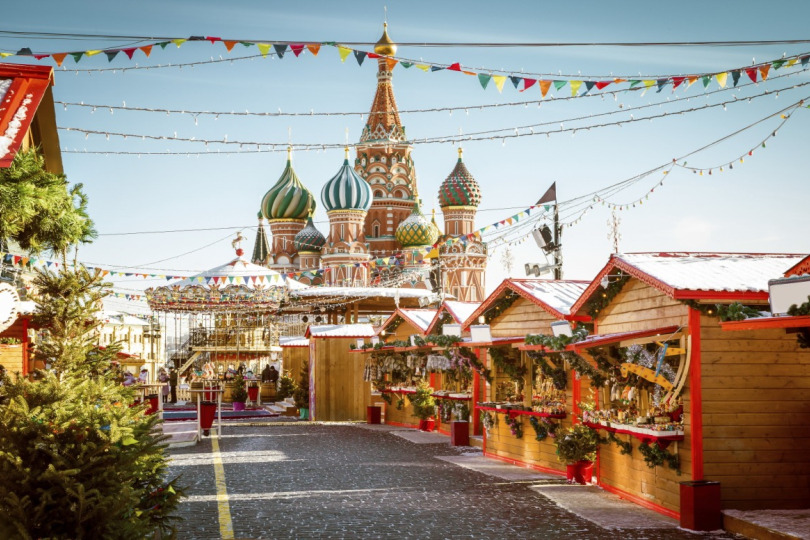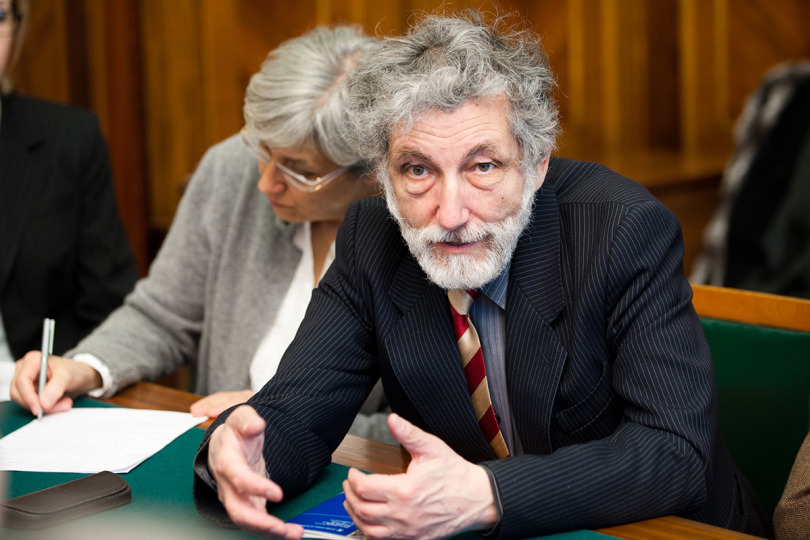.jpg)
Ageing Can Drive Progress
Twenty years from now, the number of retired persons worldwide will have grown by 600 million, almost double the current number. Life expectancy will have increased, bringing new economic challenges. Yet the growing number of seniors can also stimulate important breakthroughs in medicine, biotechnology, nanotechnology, cognitive sciences and robotics, according to the report 'Global Population Ageing and the Threat of Political Risks in the Light of Radical Technological Innovation in the Coming Decades.'

Performance Motivating Factors Reported by Russian Doctors
Interesting work, the desire to help patients, and money – these are the three key factors which motivate Russian doctors to perform, while career ambitions remain a secondary consideration, according to HSE research. Alexander Temnitsky, Leading Research Fellow of the HSE Centre for Health Policy, studied Russian doctors’ personal motives driving their performance between 2007 and 2014.
Taking Education from the 19th Century to the 21st
For the first time ever, the leaders of education studies centres from some of the world’s leading research universities met at the HSE Academic Centre in Pushkin, Russia. At the meeting, the researchers, along with a representative from OECD, discussed how education studies departments should change to meet the global challenges that face the sphere of education.

Children of Richer Parents Do Better at School
The more books in the family and the richer and more educated the parents, the more likely it is that the children will do well at school. Elena Kardanova, Inna Antypkina and Alina Ivanova, researchers at the Centre of Education Quality Monitoring of the HSE Institute of Education, presented their paper 'The Progress of Grade One Students in the First Year of School: Perpetuating Inequality in Primary Education' at the HSE's XVII April Conference.

Pride for One's Country vs. Soviet Luxury: Top Papers of the April Conference
The April International Academic Conference on Economic and Social Development is Russia’s leading academic forum on social and economic sciences, and has won international acclaim. The XVII April Conference hosted by the HSE with support from the World Bank took place in Moscow on April 19-22, 2016. Selected by journalist Boris Grozovsky specially for IQ.hse.ru, below are some of the must-reads from the 900 papers presented at the HSE's XVII April Conference.
Rotterdam, Moscow, Venice. Graduate School of Urbanism at the World’s Largest Architecture Exhibitions
In April and May, the Graduate School of Urbanism (GSU) took part in three of the largest architecture biennales, held in Rotterdam, Moscow, and Venice. The exhibitions presented the results of independent research carried out by the School, student projects, and the results of an international student workshop organized by GSU.
'Normal Is Not Ridiculous': Most Interesting Reports Presented at the HSE's XVII April International Academic Conference
The April International Academic Conference on Economic and Social Development is Russia’s leading academic forum on social and economic sciences, and has won international acclaim. The XVII April Conference hosted by the HSE with support from the World Bank took place in Moscow on April 19-22, 2016. A total of 900 papers were presented at the HSE's April Conference. We consider the following selection to be must-reads.

More Effort Needed to Integrate Migrants
At a time when industrially developed countries are facing migration pressure, Russia needs to take a fresh look at immigration to assess its geopolitical benefits and prevent inherent social risks; a smart migrant integration policy can provide a solution.
Hobbies and Clubs Can Keep Youth Away from Alcohol
Youth in medium-sized and small towns who engage in after-school activities such as hobby clubs are less likely to drink alcohol. Generally, school-age youth in communities with higher educational levels, social and professional status are less vulnerable to alcohol abuse.

Small Towns Risk Losing Young People
Russian small towns risk being depleted of young people, as three-quarters of school leavers are planning to migrate to regional centres, Moscow or St. Petersburg in search of a better life, while just 4% are prepared to stay in their home communities.


Deadline for applications to present academic reports - January 20, 2025